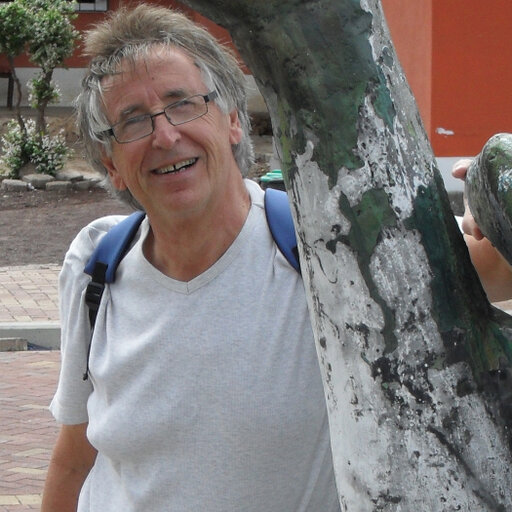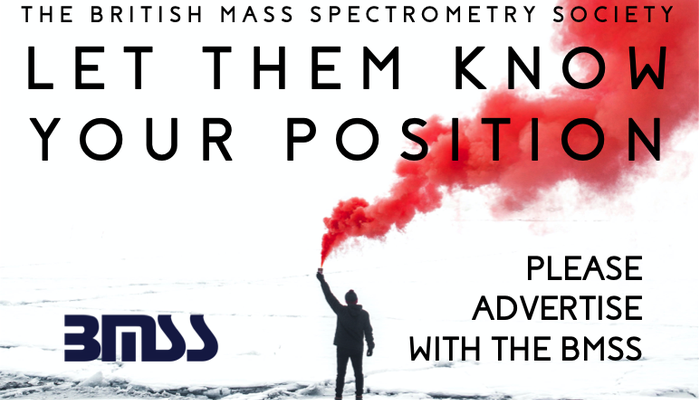Frank Pullen
Prof. Frank Pullen, Universiy of Sheffield, UK
Originally published in 2019
How did you first become interested in mass spectrometry?
I left school with OND in Science and went looking for a job in analytical chemistry. I was lucky enough to get an interview at Wellcome Research Labs. in Beckenham, who were looking for someone to join their analytical chemistry group. I went for the interview, and it was there that I was shown their AEI MS902 mass spectrometer, and was asked if I would like a job operating it. In the early 70s, mass spectrometry was a largely unknown technique, but as soon as I saw this enormous machine made of stainless steel with loads of knobs and dials, well it was ‘love at first sight’ and I was hooked. They offered me the job, which I immediately accepted, and that was how it all started. From that day forward I never looked back. Mass spectrometry has given me the greatest career that I could have ever wished for, and probably not many people can say that.
What do you think are your greatest contributions in encouraging young people to pursue mass spectrometry as a career?
Encouraging young aspiring scientists to ‘have a go’ and explore what the technique can do. Many times, in my long career, young scientists working with me have asked ‘do you think this compound will give me a mass spectrum?’ and my stock answer has always been ‘well you will not know unless you do the experiment’. I have always tried to get young scientists to try things for themselves, after all they never learn unless they try, and they must not to be afraid of making mistakes providing that they learn from those experiences. That is how I learnt. It was something my first supervisor taught me; he made me realise that scientific knowledge is only limited by your lack of imagination and your own fear to venture into the unknown. No one has all the answers, and young people need to be encouraged to push the boundaries of what they think is possible. There are too many supervisors who stifle creativity and would rather people use tried and tested approaches; where is the fun in that? Mass spectrometry is an exciting technique, probably one of the most exciting analytical techniques around, and with the right encouragement, the next generation of young scientists are going to take the technique into areas that us ‘old guard’ will only be able to stand back and look at with awe and wonder!
In what new areas could mass spectrometry make a significant impact- are new approaches and thinking necessary for these applications?
There are a number of exciting areas where mass spectrometry has been making significant advances recently. With the advent of ambient ionisation, one of those areas has been in surgical procedures. The ‘i knife’ approach is pioneering the use of mass spectrometry in the operating theatre. It is being used to identify normal from cancerous brain tissue in real time, thus improving the accuracy of tumour identification and removal. This approach, and others such as mass spec. imaging etc., have shown that mass spectrometry can be a powerful tool in the hunt for cancers in the body, and has opened up the whole area of ‘disease identification’. With the inherent high sensitivity of mass spectrometry, this whole area is fertile ground for the technique, and it will soon become invaluable to the medical community in the near future. Space exploration is also a potential area for mass spectrometry. The ability to construct mass spectrometers, send them into space and then operate them remotely is a great challenge, but one that is growing in popularity especially as we begin to send unmanned craft to unexplored planets. Those craft will need mass spectrometers on board to enable us to detect the presence of the building blocks of life and other components that can support life. Another area is the detection of low levels of contaminants in water and the atmosphere. The human race has created many problems in nature, but mass spectrometry - based approaches can at least help our current generation and the next generation of scientists identify the problems and monitor our progress in rectifying the errors of the past. All of this will need new approaches and new thinking. We need to ensure that the next generation of mass spectrometrists are equipped with the necessary enthusiasm and confidence to recognise that ‘the road to success is always under construction’ and that they will be responsible for the next section of that exciting road.
What advice would you give a scientist starting out in mass spectrometry?
Any career has to be fun as well as challenging! Mass spectrometry always has been, and always will be the technique that is at the ‘cutting edge’ of analysis. That means it is a technique that is both frustrating as well as rewarding at the same time. There is no such thing as a failed experiment. The result will tell you something and will enable you to try some other approach to the problem. You will never stop learning and you will always be striving to get a better result. So the best advice I would give any scientist starting out in this area is always be positive; always question things; no one has all the answers. Everyone in the mass spectrometry community will love to talk about their experiences, so at conferences ask questions, talk to the ‘old guard’ about your research, they will always be interested in your work and will be happy to share their experiences with you. After all, ‘it’s good to talk!’
Where do you see the future of mass spectrometry in the next ten years- can it still be a career path for young people?
I think that today more than ever before, mass spectrometry is the technique that will have the biggest impact in the area of analytical science. Its’ inherent sensitivity as well as its adaptability makes it almost the universal detector. When I started out in the early 70’s it was a technique considered as being on the ‘lunatic fringe’ of analytical science, but since then it has made significant inroads and has now eclipsed many of the other more classical techniques. This, in my opinion, will only continue, and so I think the future is exciting and mind blowing, I only wish I could start all over again myself. M.S. is a technique that keeps giving and growing. It is here to stay and career prospects within the discipline have never been rosier. I think the days of centralised mass spectrometry facilities in any industrial setting are disappearing because there are now so many applications that need mass spectrometry, and the centralised facility has been replaced by focussed mass spectrometry activities associated with various work streams within the specific industry. This means that for new people looking for positions within an industrial setting, the vacancies are now within multidiscipline teams which are focussed on specific functions within the industrial process. When I started out, I could never have predicted the time when mass spectrometry would be a critical part of a bigger process and that the mass spectrometrist would be a key part of a multidisciplinary team containing chemists, chromatographers, IT experts, molecular modellers etc, but those teams are now becoming an integral part of the pharmaceutical industry and their popularity continues to grow. Along with that change of approach there is a growing need for mass spectrometrists who can interact with these other disciplines. So in my opinion the need for mass spectrometrists within industry is increasing, but those people need to be “savvy” with other disciplines and be able to “speak” their language and understand their needs and how mass spectrometry can help with the outcome. That is both a challenge but also an opportunity for new people looking at mass spectrometry roles within industry.
Could you describe your lasting memories/most satisfying achievements of your career in mass spectrometry?
This is a difficult question, as there are so many. I suppose my lasting memory would be all the people who I have met during my career, all the fascinating chats that I have shared with mass spectrometrists over the years. I have been fortunate to have met and conversed with many of the famous people in this area of science and those discussions have and continue to both excite and challenge me. As I have gone through life I have realised that there is no such thing as a wasted conversation; I learn something from every discussion that I have with people both young and old. My most satisfying achievement is easier to answer. It’s seeing young people grow as scientists and achieve more than they thought was possible. All supervisors should strive to help our next generation strive to become better than we were. Young scientists are our future, and we should equip them with the tools to achieve greatness, which will then allow us to hand the baton of future research over to them in the knowledge that it is in safe hands!

